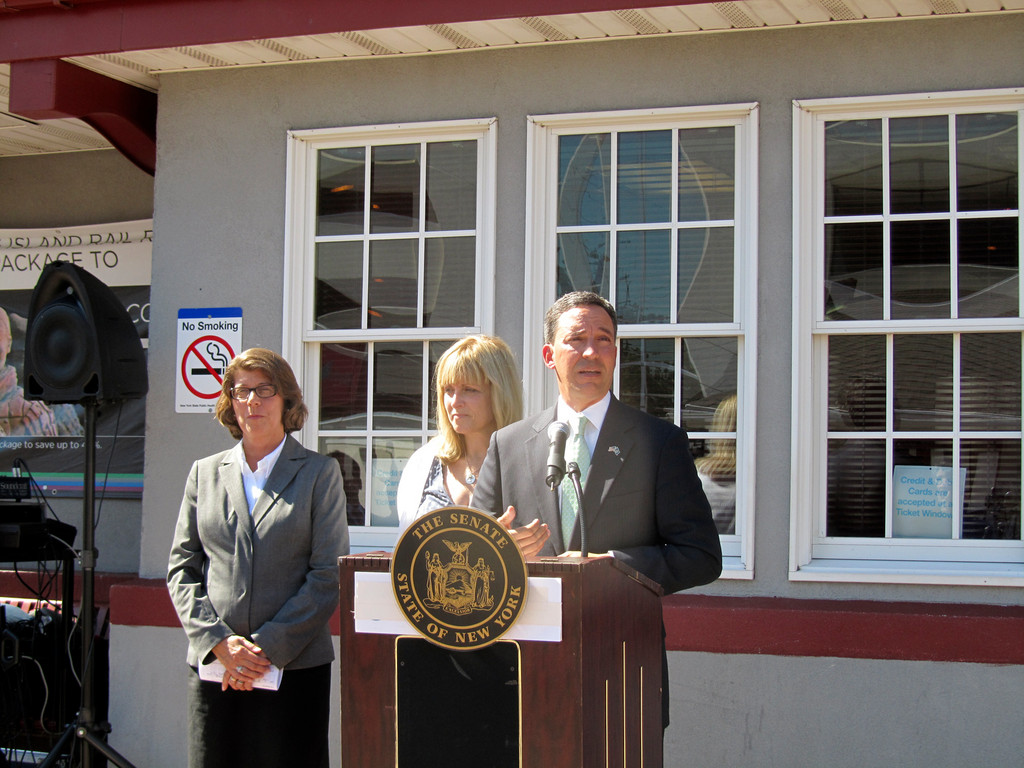LIRR tickets to be valid longer
Long Island Rail Road riders that did not use their one-trip ticket on the day of purchase were frequently out of luck. If riders happened to find a ride home from a coworker that had driven into Manhattan, their pre-purchased tickets often went unused. The validity period on tickets was two-weeks from the date of purchase; if a rider wished to return the unused ticket, they were charged a $10 processing fee, more than the cost of the ticket itself.
In January of 2011, the validity period for Long Island Rail Road tickets was reduced to two weeks from six months. State Senator Jack Martins says that should never have happened. Starting on September 4, one-trip tickets will be valid for two months from the date of purchase. The MTA’s revision is a step in the right direction Martins said at the Mineola train station on July 25.
A bill put forth by Martins to extend the validity time on tickets passed twice; a similar bill put forward by Assemblywoman Michelle Schimel also passed. Both lawmakers heard complaint after complaint from riders regarding the validity period on tickets. The validity period for a subway metrocard is one year, why aren’t LIRR tickets valid longer, Martins asked. “The suburban commuter on Long Island is not the MTA’s piggybank,” he said.
Both Martins and Schimel said that extending the period of validity will encourage use of the LIRR and benefit Long Island’s economy. “Mass transit is the lifeblood of the metropolitan area,” Schimel said. Though the period of validity will increase, the $10 processing feel will remain in place. Refunding a ticket costs the LIRR money LIRR President Helena Williams said, so the fee will still be in effect.
Though a processing few will remain in place for ticket returns, the period of time riders have to request a refund will be extended. Commuters will have two months to file for a refund compared with one month previously. Ten-trip tickets will be valid for six months and can be returned within that same time period.
Martins said he plans to continue to push for an elimination of the refund fee. According to the MTA extending the validity period will cost the authority $6 million. Martin’s said that in comparison with its $42 billion yearly budget, the cost is minimal and the authority should actively pursue eliminating the fee. Williams added that by extending the validity, the MTA hopes to reduce the necessity of refunds significantly.

 66.0°,
Shallow Fog
66.0°,
Shallow Fog 




